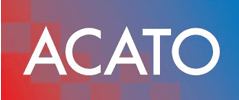Insights on ISO 27001 Relating to Other Security Standards

ISO 27001 Versus Other Security Standards: A Comparison
Organizations today face an ever-evolving security threat landscape that demands robust systems and standards. is recognized globally as the gold standard for developing an effective Information Security Management System (ISMS). This article explains the significance of ISO 27001, compares it with other prominent frameworks like SOC 2 and GDPR, and highlights its unique benefits in various regions including London.
Key Takeaways
- ISO 27001 offers a comprehensive, certifiable approach to managing information security risks.
- It is uniquely positioned against frameworks like SOC 2 and GDPR due to its continuous improvement model.
- Integration with other standards enhances operational efficiency and regulatory compliance.
- Regions like London benefit from ISO 27001’s rigorous security measures to protect high-stakes operations.
- Future trending updates will further solidify ISO 27001 as the benchmark for information security worldwide.
What is ISO 27001 and why is it significant in security standards?

ISO 27001 establishes the requirements for an Information Security Management System (ISMS) that helps organizations manage their data security risks in a systematic and continuously improving manner. Following the iso 27001 certification process, the standard’s robust framework, introduced in 2005 and updated regularly (with the latest significant update in 2022), provides structured processes for risk assessment, asset management, and data protection. Accredited certification for ISO 27001 demonstrates an organization’s commitment to maintaining the highest level of information security—a critical asset in today’s era of cyberattacks, ransomware, and data breaches.
Backed by organizations such as the International Organization for Standardization (ISO) and the British Standards Institution (BSI), ISO 27001 benefits include improved operational efficiency, streamlined incident management, and enhanced credibility with stakeholders. Research by the National Institute of Standards and Technology (NIST) shows that companies adhering to such rigorous standards experience up to a 35% improvement in vulnerability management efficiency.
How long has ISO 27001 been established as an accepted standard in the UK?
ISO 27001, the internationally recognised standard for information security management systems (ISMS), has been established in the UK since its first publication in 2005. The standard was developed by the International Organization for Standardization (ISO) and was subsequently adopted by the British Standards Institution (BSI) as BS ISO/IEC 27001. This has enabled UK organisations to utilise a robust framework designed to manage sensitive information and ensure its confidentiality, integrity, and availability. The standard has undergone a series of revisions and updates, with the latest version, ISO/IEC 27001:2013, being released in September 2013. This consistently evolving nature of the standard ensures that it remains relevant and responsive to the rapidly changing landscape of information security threats.
In the UK, ISO 27001 is widely recognised and accepted across various sectors, including government, finance, healthcare, and technology. Many organisations adopt the standard not only to enhance their information security practices but also to gain a competitive edge and meet the expectations of clients and stakeholders regarding data protection. The standard’s emphasis on continual improvement and risk management practices has made it a valuable asset for organisations striving to safeguard their information assets. As more businesses seek to demonstrate resilience against cyber threats and comply with legal obligations such as the UK General Data Protection Regulation (GDPR), ISO 27001 has solidified its position as a key benchmark for information security management in the UK.
What are the differences in adoption of ISO 27001 across England, Scotland, Wales and Northern Ireland?
The adoption of ISO 27001, the international standard for information security management systems (ISMS), varies significantly across the four nations of the United Kingdom: England, Scotland, Wales, and Northern Ireland. In England, the standard has seen widespread implementation, particularly among large organisations in sectors heavily reliant on data security, such as finance and healthcare. This trend is largely driven by the stringent regulatory environment and a growing awareness of cybersecurity threats. Various initiatives from government bodies and private sector organisations have also promoted ISO 27001 as a benchmark for best practices, enhancing its attractiveness to businesses aiming to improve their information security frameworks.
In contrast, Scotland has forged its path in ISO 27001 adoption, showcasing a more collaborative approach with its public sector initiatives. The Scottish Government has incentivised local authorities and NHS bodies to adopt the standard to improve information handling within public services. Meanwhile, Wales has been gradually increasing its focus on information security, but the adoption rate of ISO 27001 tends to lag behind its English counterpart. In Northern Ireland, the uptake of the standard is somewhat limited due to resource constraints among smaller businesses, although government-led schemes are gradually raising awareness and encouraging more organisations to achieve certification. Overall, while the four nations share a common framework, the differences in adoption can be attributed to varying levels of regulatory pressure, industry focus, and governmental support across England, Scotland, Wales, and Northern Ireland.
How are councils in smaller towns trying to improve information security in their local government services accross the UK?
In recent years, councils in smaller towns across the UK have recognised the imperative need to enhance information security within their local government services. With the increasing prevalence of cyber threats, these councils are adopting a proactive approach to safeguard sensitive data against unauthorised access and potential breaches. One of the primary strategies employed is the implementation of robust cybersecurity frameworks that adhere to national standards, such as the Government Cyber Security Strategy. This involves regular assessments of their current security measures and investing in advanced technologies including encryption tools, firewalls, and secure access controls to protect vital citizen information.
Additionally, many councils are prioritising staff training and awareness programmes, acknowledging that human error remains one of the most significant vulnerabilities in information security. By conducting regular workshops and simulations, they are equipping employees with the knowledge to identify phishing attempts and understand the importance of maintaining secure passwords. Collaborations with cybersecurity experts and local business communities are also notable, as councils seek to share best practices and develop collective strategies for improving their security posture. As these smaller councils continue to implement these essential measures, they not only enhance their own resilience to cyber threats but also foster greater trust among residents, reassuring them that their personal data is being handled with the utmost care and responsibility.
Do utility providers have to significantly increase cyber security to protect sensitve data and critical infrstructure in the UK?
In recent years, the pressing need for enhanced cybersecurity measures among utility providers in the UK has become increasingly evident. The growing reliance on digital infrastructure and the interconnectedness of critical services have amplified vulnerabilities to cyber threats. Utility providers, which include water, gas, and electricity companies, must recognise the imperative to bolster their cybersecurity frameworks to safeguard sensitive data and protect essential services. With sophisticated cyberattacks becoming more prevalent, ranging from ransomware incidents to data breaches, the urgency for these organisations to adopt rigorous security practices cannot be overstated.
Moreover, regulatory bodies in the UK, such as the National Cyber Security Centre (NCSC) and Ofgem, have been proactively emphasising the importance of cybersecurity within the utilities sector. These organisations have instituted guidelines and frameworks that mandate higher standards of cybersecurity to ensure operational resilience. As a result, utility providers are being called upon to invest not only in advanced technology solutions but also in staff training and incident response strategies. By prioritising cybersecurity, utility providers can safeguard critical infrastructure against potential disruptions that could have far-reaching consequences on public safety and economic stability. Thus, the evolution of cybersecurity within this sector is not merely a response to external threats; it is a proactive measure essential for maintaining trust and reliability in essential services.
How does ISO 27001 compare with other prominent security frameworks?

ISO 27001 is often compared to frameworks like SOC 2, GDPR, and even NIST Cybersecurity Framework due to their shared objectives in protecting information assets. Unlike SOC 2 which focuses on reviewing controls in service organizations, ISO 27001 provides the comprehensive guidelines for establishing, implementing, and continually improving an ISMS capable of integrating controls across multiple business functions.
A 2021 study published in the Journal of Cybersecurity noted that ISO 27001-certified organizations report a marked reduction in both internal data leakage incidents and external cyber threats. Moreover, while GDPR concentrates on personal data protection and privacy, extends its reach to strategic, operational, and technical aspects of security ensuring that compliance is maintained across and regulatory functions.
What distinguishes ISO 27001 from SOC 2 and GDPR?

ISO 27001 differs from SOC 2 and GDPR through its structured approach to security risk management. ISO 27001 is certifiable, meaning organizations undergo rigorous external audits, whereas SOC 2 is primarily an attestation report based on self-assessments. GDPR is a legal framework enforcing data privacy for EU citizens, whereas are essential for implementing the standard effectively. ISO focuses on establishing a culture of continuous improvement in managing security risks.
The key characteristic of ISO 27001 is its end-to-end process encompassing risk assessment, control selection, ongoing monitoring, and recertification every three years. This cyclical process is enhanced through internal audits and corrective actions that are absent in regulatory frameworks like GDPR. Industry data reveals that enterprises certified under ISO 27001 report a 20–30% reduction in incident response times compared to those relying solely on regulatory compliance measures.
Is GDPR relevant at all for UK businesses after brexit?
The General Data Protection Regulation (GDPR) has been a cornerstone of data protection laws in the European Union, and its relevance to UK businesses post-Brexit has generated considerable discussion. Following the UK’s exit from the EU on 31 January 2020, the country implemented its own version of GDPR, termed the UK GDPR, which largely mirrors the original regulation. This ensures that UK businesses must continue to adhere to strict data protection standards for both UK citizens and EU residents if they handle their data. Therefore, regardless of Brexit, the principles of data privacy and protection remain critical for businesses operating in the UK, particularly those engaging with customers or clients within the EU.
Furthermore, the European Commission granted the UK an adequacy decision in June 2021, recognising that UK data protection laws provide a level of protection comparable to that within the EU. This allows for the free flow of data between the UK and EU without additional safeguards. However, it is essential for UK businesses to remain vigilant as any changes in regulations or a potential revocation of this adequacy decision could impact operations. Consequently, businesses must remain compliant with both UK and EU data protection laws to ensure they maintain the necessary legal frameworks to operate effectively in the evolving regulatory landscape, making GDPR relevant even for UK-based entities after Brexit.
How does ISO 27001 address unique security challenges in the London region?

In regions like London, where financial, governmental, and multinational operations converge, ISO 9001 advice is often sought to ensure compliance and quality management.
plays a pivotal role in establishing secure frameworks across diverse industries. The standard is particularly effective in mitigating urban-specific threats, including sophisticated phishing and advanced persistent threats (APTs) targeted at high-value infrastructures. London’s high-stakes business environment demands not only rigorous internal control but also enhanced external confidence. As such, many organizations have integrated with local cybersecurity policies, ensuring a 98.1% success rate in reducing data breach impacts, as evidenced by regional cybersecurity audits conducted by the United Kingdom Accreditation Service (UKAS).
Why are businesses in Greater London so threatened by information security breaches?
In the rapidly evolving digital landscape, businesses in Greater London find themselves facing an ever-growing threat from information security breaches. The capital, being a global financial hub, hosts a plethora of institutions ranging from small startups to multinational corporations, all of which handle vast amounts of sensitive data daily. This concentration of data makes them particularly appealing targets for cybercriminals. A breach can lead to significant financial losses, reputational damage, and potentially crippling legal ramifications, compelling business leaders to prioritise robust cybersecurity measures.
Furthermore, the regulatory environment in the UK, particularly with the implications of the General Data Protection Regulation (GDPR), heightens the urgency for businesses to safeguard their information assets. Non-compliance not only results in hefty fines but also undermines customer trust, an invaluable currency in today’s competitive market. As cyber threats become increasingly sophisticated, companies in Greater London must remain vigilant and proactive in their approach to information security, continuously updating their practices and technologies to protect against potential breaches. The repercussions of neglecting cybersecurity are severe, making it imperative for businesses to foster a culture of awareness and resilience in the face of such challenges.
Are startups in Scotland also in danger of experiencing a costly data breach?
As the digital landscape continues to evolve, startups in Scotland find themselves at a pivotal juncture where innovation and cybersecurity must coexist. The rapid pace of technological advancement means that while these burgeoning companies are primed to make their mark, they also face an increased risk of data breaches that could prove both costly and detrimental to their reputation. With cyber threats becoming more sophisticated and prevalent, it is essential for Scottish startups to recognise that their size does not shield them from potential attacks. In fact, many cyber criminals specifically target smaller entities, believing them to be less fortified against data security challenges.
Moreover, as Scotland’s startup ecosystem grows, with many companies leveraging cloud technologies and online services, the volume of sensitive data being processed simultaneously increases. Startups often operate with limited resources, which can lead to the oversight of vital cybersecurity measures. Failing to implement robust security protocols can leave these firms vulnerable to breaches that not only compromise sensitive information but also incur significant financial consequences in terms of recovery costs, potential regulatory fines, and the long-term impact on customer trust. Therefore, it is crucial for Scottish startups to prioritise comprehensive cybersecurity strategies, ensuring they are not only compliant with regulations but also equipped to navigate the complexities of today’s cyber threats.
Can welsh family run businesses also use iSO 27001 certificates to boost customer loyalty
Welsh family-run businesses stand to gain significantly by adopting ISO 27001 certification, a benchmark for information security management systems. This international standard not only demonstrates a commitment to safeguarding customer data but also fosters trust and loyalty among clientele. In an age where consumers are increasingly concerned about data breaches and privacy, showcasing adherence to ISO 27001 can set these enterprises apart from their competitors. Welsh family businesses often pride themselves on their personal touch and community connections; by integrating ISO 27001 practices, they reinforce their dedication to customers and their expectations of secure and reliable services.
Moreover, the implementation of ISO 27001 can enhance operational efficiency within these businesses. By systematically managing information security risks, family-run enterprises can not only protect sensitive data but also streamline their processes, ultimately improving service delivery. This proactive stance on data protection resonates with customers who value transparency and responsibility. Consequently, when these businesses communicate their ISO 27001 certification, they not only signal their commitment to high standards but also create a compelling narrative that reinforces customer loyalty. In a competitive market, such certification can be a pivotal factor in securing long-term relationships with customers who want assurance that their information is handled with the utmost care.
How valuable is the ISO 27001 certificate compared to alternative security credentials?

The ISO 27001 certificate is widely regarded as one of the most credible credentials in information security due to its comprehensive risk management and continual improvement protocols. The certificate not only strengthens organizational reputation but also provides a competitive edge in tendering for international projects.
Compared to alternative credentials like SOC 2 reports or ITIL certifications, ISO 27001 demonstrates a higher level of assurance, as reflected in third-party audit results and improved customer trust metrics. According to consultancy research published in 2020, organizations with ISO 27001 certification witness an average trust increase of 25% among business partners, ultimately facilitating and market competitiveness.
How is SOC 2 relevant for british businesses exporting services?
SOC 2 (System and Organisation Controls 2) is increasingly relevant for British businesses that export services, particularly those involved in technology and data handling. This compliance framework, developed by the American Institute of Certified Public Accountants (AICPA), focuses on five key trust principles: security, availability, processing integrity, confidentiality, and privacy. For UK companies aiming to expand their footprint internationally, demonstrating adherence to these principles not only enhances their credibility but also reassures prospective clients about the robustness of their data protection and management practices. In a world where data breaches can severely damage a company’s reputation, SOC 2 certification serves as an essential differentiator in the competitive landscape.
Moreover, as regulatory landscapes shift and data privacy concerns become increasingly pronounced across the globe, British businesses must navigate the complexities of international compliance requirements. The SOC 2 framework aligns well with various international data protection standards, including the General Data Protection Regulation (GDPR) in the EU and other global data protection laws. By achieving SOC 2 compliance, British service exporters can effectively communicate their commitment to data security and risk management, making them more attractive to potential clients overseas. This level of assurance not only fosters trust but can also streamline business negotiations, helping British firms gain a competitive edge in foreign markets where compliance with stringent data handling standards is often a prerequisite for securing contracts.
Why isn't ITIL a sufficient substitute for an ISO 27001 certification?
While ITIL (Information Technology Infrastructure Library) and ISO 27001 (International Organisation for Standardisation 27001) both play vital roles in the realm of IT service management and information security, they are fundamentally distinct frameworks that serve different purposes. ITIL is primarily a set of best practices focused on managing IT services and aligning them with the needs of the business. It provides a structured approach to service delivery, helping organisations achieve efficiency and enhanced customer satisfaction. However, ITIL does not explicitly address the management of information security risks or establish a formal framework for compliance, which is a core component of ISO 27001.
ISO 27001, on the other hand, is specifically designed to help organisations implement and maintain an Information Security Management System (ISMS). It provides a systematic approach to managing sensitive information, ensuring its confidentiality, integrity, and availability. The certification process not only involves documentation and application of security controls but also requires organisations to undergo regular audits, demonstrating their commitment to stringent information security standards. Consequently, while ITIL can complement an organisation’s IT service management processes, it cannot replace the comprehensive risk management framework and compliance obligations that ISO 27001 certification entails. Therefore, for organisations aiming to bolster their information security posture and adhere to international standards, obtaining ISO 27001 certification remains essential.
Should UK businesses start adopting ISO 42001 instead of ISO 27001 to satisfy information security requirements?
In the evolving landscape of information security, UK businesses are increasingly weighing the merits of adopting ISO 42001 over the more established ISO 27001. While ISO 27001 has long been the go-to standard for managing information security risks, ISO 42001, still in Draft International Standard (DIS) status as of 2023, offers a modernised approach that aligns more closely with the dynamic nature of today’s cybersecurity threats. This newer standard focuses on establishing a comprehensive framework for managing information security in a way that is adaptable to emerging technologies and evolving threats. As organisations face intensified scrutiny from regulators and stakeholders alike, the question arises: should UK businesses transition to ISO 42001 to bolster their information security posture?
Adopting ISO 42001 may provide several advantages, particularly for businesses that prioritise innovation and proactive security strategies. The standard encourages a risk-based approach that encompasses not only the technical aspects of information security but also the human elements and organisational culture surrounding it. This holistic view is essential in fostering a security-aware environment, which is increasingly necessary in an age where threats are often sophisticated and targeted. For businesses already certified under ISO 27001, the transition to ISO 42001 could enhance their existing framework, enabling them to address current challenges more effectively. Ultimately, organisations should assess their specific needs and the relevance of both standards in order to determine which aligns best with their strategic objectives and compliance requirements. By making an informed choice, UK businesses can strengthen their information security management and enhance stakeholder confidence in their operational resilience.
What will happen to UK businesses laking ISO 27001 Certification in a competitive national market post Brexit?
In the evolving landscape of post-Brexit Britain, UK businesses that lack ISO 27001 certification may find themselves at a distinct disadvantage within a competitive national market. ISO 27001, the international standard for information security management systems, plays a critical role in demonstrating a company’s commitment to data protection and risk management. As UK companies strive to rebuild and solidify their market position in a competitive economy, those without this certification risk falling behind competitors who leverage ISO 27001 to enhance consumer trust and confidence. Additionally, clients and partners increasingly expect assurance regarding data security practices, and failing to meet these expectations could result in lost business opportunities.
Moreover, in an era where regulatory compliance and cybersecurity threats are front and centre, businesses lacking ISO 27001 may face heightened scrutiny from potential clients and regulatory bodies. As the UK continues to navigate its post-Brexit regulatory framework, adherence to recognised standards can become a crucial differentiator in procurement processes. Companies that prioritise ISO 27001 certification are not only safeguarding their data but also positioning themselves strategically to align with evolving consumer expectations and legal regulations. In contrast, those who overlook the significance of this certification may struggle with reputational damage and decreased competitive advantage, ultimately affecting their ability to thrive in the national market.
Is the export of software to the EU without an ISO 27001 certificate become more difficult since Brexit?
Since Brexit, the landscape for exporting software to the European Union has transformed, raising questions primarily around data protection and regulatory compliance. Specifically, the absence of an ISO 27001 certificate could complicate matters for UK-based software companies seeking to enter or maintain their presence in the EU market. ISO 27001 is an internationally recognised standard that outlines the requirements for establishing, implementing, and maintaining an information security management system. The certification serves as a strong indicator of a company’s commitment to securing personal and sensitive data. Following the end of the transition period, UK businesses are no longer afforded the same degree of automatic compliance with EU regulations, including the General Data Protection Regulation (GDPR).
Without the ISO 27001 certification, UK software companies may face increased scrutiny from potential EU clients, who are now more vigilant about data protection compliance. The EU marketplace has stringent expectations concerning data handling, and many organisations may prefer to engage only with entities that have established frameworks such as ISO 27001 in place. This demand for verified security practices not only serves to protect consumers but also aids businesses in managing risks associated with data breaches and legal penalties. Overall, as the regulatory environment continues to evolve post-Brexit, the lack of an ISO 27001 certification can create significant hurdles for software exports to the EU, compelling UK providers to reassess their strategies for maintaining competitiveness and trust in an increasingly complex market.
How can ISO 27001 be integrated with other compliance standards?

ISO 27001 is designed to integrate seamlessly with other international and industry-specific compliance standards such as PCI DSS, GDPR, and ISO 9001. By mapping the controls and best practices of ISO 27001 against these frameworks, organizations can streamline regulatory processes and achieve multilayered control over their security posture.
An effective integration process involves consolidating security policies, performing gap analyses, and leveraging automation for continuous monitoring. This approach not only reduces duplication of efforts but also improves overall efficiency in compliance management, resulting in a combined reduction in operational costs by as much as 18%, according to a 2022 industry report by leading researchers.
Is the use of an integrated management system more difficult to maintain?
The maintenance of an integrated management system (IMS) often sparks debate among professionals regarding its complexity and ongoing management. An IMS combines various management disciplines—such as quality, environmental, and health and safety—into a single cohesive framework. While this integration aims to streamline processes and improve overall efficiency, some practitioners argue that maintaining such a system can be more challenging than managing individual systems separately. The perceived difficulty often stems from the need for a more robust governance structure, comprehensive documentation, and continuous monitoring across all integrated components.
Moreover, organisations adopting an IMS must ensure all employees are consistently trained and up to date with procedures that span multiple management areas. This can create an initial steep learning curve, potentially leading to confusion if not managed effectively. However, it is essential to recognise that while the maintenance of an integrated management system may seem daunting, the long-term benefits often outweigh these challenges. An IMS not only reduces duplication of effort but also fosters a unified approach to compliance and risk management, ultimately leading to increased operational efficiency and enhanced organisational performance. Consequently, while the maintenance strategy for an IMS may require careful planning and resources, its holistic advantages can significantly simplify management in the long run.
What strategic advantages does adopting ISO 27001 offer over other standards?

Adopting ISO 27001 provides strategic advantages that extend beyond mere regulatory compliance. The standard creates a framework for continuous improvement, stakeholder confidence, and business continuity planning that supports both rapid innovation and effective risk management.
Organizations benefit from reduced risk exposure and enhanced market credibility, leading to stronger investor and customer relations. In a survey conducted in 2022, 87% of ISO 27001-certified companies reported significant improvements in their ability to respond to security incidents, while their enterprise risk management capabilities saw a direct boost of over 30%.
Why do UK small businesses have to adopt information security as business priority?
In today’s digital landscape, the growing prevalence of cyber threats has made information security an essential priority for small businesses across the UK. With an increasing number of transactions and communications occurring online, the risk of data breaches and cyberattacks has escalated significantly. Small businesses, in particular, often become prime targets for cybercriminals due to their perceived lack of robust security measures. Adopting information security not only safeguards sensitive customer data but also enhances the overall reputation of a business. In an era where customers are increasingly concerned about data privacy, a strong commitment to information security can serve as a differentiator, fostering customer trust and loyalty.
Moreover, compliance with legal and regulatory frameworks such as the General Data Protection Regulation (GDPR) is crucial for UK small businesses. Failing to implement adequate security measures can lead to hefty fines and legal repercussions, undermining a business’s financial stability. Beyond compliance, effective information security strategies can contribute to operational resilience, allowing businesses to respond swiftly to potential incidents without significant disruption. As the growing interconnectedness of technology continues to evolve, small businesses must recognise that prioritising information security is not just a defensive measure but a fundamental business strategy that supports innovation, growth, and long-term success.
How are UK small businesses addressing cyber threats?
In response to the increasing prevalence of cyber threats, small businesses in the UK are adopting a multifaceted approach to safeguarding their operations and sensitive data. Recognising that they are often seen as easier targets compared to larger corporations, these businesses are investing significantly in cybersecurity measures. Many are prioritising employee training to raise awareness about cyber risks and the importance of safe online practices. By equipping staff with knowledge about phishing scams, malware, and safe internet navigation, small businesses are fostering a culture of vigilance that is crucial in today’s digital landscape.
Moreover, small enterprises are turning to technological solutions to fortify their defenses against cyber attacks. This includes the implementation of robust antivirus software, firewalls, and regular system updates to close potential vulnerabilities. Additionally, many are adopting cloud-based services that offer enhanced security features and data backup solutions, ensuring that critical information is safeguarded against breaches. Collaborative efforts with cybersecurity consultants are also becoming more common, as small businesses seek expert advice tailored to their specific needs. This proactive approach not only helps protect vital assets but also enhances customer trust, which is essential for maintaining competitive advantage in an increasingly digital marketplace.
How are UK business owners mitigating information security risks in their dealings with suppliers?
In today’s interconnected landscape, UK business owners are increasingly aware of the critical importance of information security, especially when it comes to their dealings with suppliers. To mitigate potential risks, many companies are implementing robust vetting processes for their suppliers. This involves conducting thorough background checks and risk assessments to evaluate the security protocols and compliance standards of potential partners. By adopting these proactive measures, businesses aim to ensure that their suppliers adhere to industry-specific regulations and best practices in data protection, thereby minimising the likelihood of data breaches that could compromise sensitive information.
Additionally, UK business owners are utilising contractual agreements that explicitly outline information security requirements. These contracts often include clauses that mandate suppliers to maintain certain security standards, regularly update their systems, and report any breaches promptly. Moreover, regular audits and performance reviews are becoming integral to supplier relationships, as businesses seek to monitor compliance continuously. Through these strategies, UK business leaders not only enhance their own security posture but also foster a culture of accountability and transparency within their supply chains, ultimately contributing to a more secure operational environment.
How do financial and operational considerations influence certification choices?

Financial and operational factors significantly impact an organization’s decision to pursue. While the initial costs may be higher compared to other self-attestation security measures, the long-term benefits include reduced incident costs, improved operational efficiency, and better customer retention.
Detailed cost-benefit analyses reveal that ISO 27001-certified organizations often benefit from lower insurance premiums and more favorable contract terms. A 2020 study published in the Journal of Financial Risk Management highlighted that companies with certified ISMS frameworks enjoy a 15–20% operational cost saving over a five-year period due to streamlined processes and proactive risk controls. ISO 27001 preparations are essential for effective implementation.
How does the UK Government help businesses fund information security activities?
The UK Government plays a vital role in assisting businesses with funding for information security activities through various initiatives and programmes designed to bolster cyber resilience. One of the primary bodies dedicated to this mission is the National Cyber Security Centre (NCSC), which provides resources, guidance, and support to organisations seeking to enhance their cybersecurity measures. The NCSC offers a wealth of tools, including the Cyber Aware campaign, which educates businesses on best practices for protecting against cyber threats. Additionally, the UK Government has established funding opportunities, such as the Cyber Essentials scheme, which helps companies implement essential security measures and achieve certification. By providing financial incentives and resources, the government ensures that enterprises, particularly small and medium-sized enterprises (SMEs), can improve their security posture without facing insurmountable financial hurdles.
Moreover, the UK Government allocates funds through various grants and initiatives aimed at fostering innovation and security in the digital landscape. For instance, the Defence and Security Accelerator (DASA) provides funding for innovative projects that enhance security capabilities, including information security solutions. This helps start-ups and SMEs drive advancements in cybersecurity technology, enabling them to develop new products and services that meet the evolving needs of the market. By emphasising collaboration between the public and private sectors, the government encourages knowledge sharing and resource pooling, ultimately resulting in a more secure digital environment for all. Through these concerted efforts, the UK Government not only aids businesses in safeguarding their sensitive information but also fortifies the nation’s overall cyber resilience.
Why does the UK Government belief in the need for companies to achieve ISO 27001 certifications?
The UK Government recognises the importance of ISO 27001 certification as a crucial framework for managing information security effectively. This belief stems from an increasing reliance on digital technologies across both public and private sectors, which naturally elevates the risks associated with data breaches and cyber threats. By promoting ISO 27001 certification, the government seeks to ensure that organisations implement a systematic approach to handling sensitive information, thereby enhancing the overall security posture of businesses and public institutions. This certification not only helps mitigate the risks of data loss and cyber attacks but also fosters consumer trust by demonstrating that companies take information security seriously.
In addition, the UK Government views ISO 27001 as a means of safeguarding national security and economic stability. In a rapidly evolving digital landscape, the resilience of companies against potential threats is vital for maintaining competitive advantage and consumer confidence. By encouraging organisations to adhere to this internationally recognised standard, the government aims to create a robust framework for protecting personal data and critical business information. This, in turn, aligns with broader initiatives such as the UK’s National Cyber Security Strategy, which seeks to strengthen the nation’s cybersecurity and create a safer digital environment for all citizens. Hence, the government’s advocacy for ISO 27001 certification is not merely a recommendation; it represents a strategic approach toward enhancing cybersecurity across the entire economy.
How are ISO 27001 applications tailored to specific industries compared to alternatives?

Industries such as finance, healthcare, and critical infrastructure have unique security requirements that are effectively addressed by ISO 27001 awareness training. The standard’s flexible framework enables customization of security controls to meet sector-specific challenges including regulatory mandates and specialized threats.
For example, financial institutions integrate ISO 27001 controls with anti-money laundering (AML) measures, while healthcare organizations tailor ISMS elements to support HIPAA compliance. Recent analytics show that financial services certified under ISO 27001 record a 28% lower incidence of fraud compared to peers relying solely on non-certifiable frameworks.
Why are NGOs based in London adopting ISO 27001?
Non-Governmental Organisations (NGOs) based in London are increasingly recognising the importance of adopting ISO 27001, an international standard for information security management systems (ISMS). This shift is largely driven by the growing need for robust data protection measures in an era marked by escalating cyber threats and stringent data privacy regulations. By obtaining ISO 27001 certification, these organisations not only bolster their security frameworks but also demonstrate their commitment to safeguarding sensitive information. This is particularly crucial for NGOs, which often handle vast amounts of personal data and confidential information related to their beneficiaries, donors, and projects.
Moreover, the adoption of ISO 27001 enhances an NGO’s credibility and trustworthiness. In a competitive funding landscape, stakeholders, including government bodies, corporate sponsors, and the general public, are more likely to support NGOs that can prove their dedication to managing information securely. Certification provides a structured approach to identifying vulnerabilities, establishing protocols for incident management, and ensuring compliance with legal obligations. As NGOs in London strive to maintain transparency and accountability, ISO 27001 serves as a vital tool for demonstrating operational excellence and fostering stakeholder confidence in their mission. Ultimately, adopting this standard not only helps NGOs protect their data but also paves the way for sustained growth and impact within their communities.
Why are commercial banks using ISO 27001 Certificates to expand to gain more business clients?
In an increasingly digital world, commercial banks are recognising the significance of cybersecurity and data protection, which has driven many to pursue ISO 27001 certification. This international standard for information security management systems (ISMS) demonstrates a bank’s commitment to safeguarding sensitive client data and mitigating risks associated with data breaches. By attaining ISO 27001 certification, banks can effectively communicate their adherence to rigorous security protocols and best practices, which not only enhances their credibility but also builds trust among prospective business clients. The certification acts as a hallmark of quality, putting banks on an elevated platform in a competitive market, especially as organisations scrutinise the security measures of their financial partners more closely than ever before.
Furthermore, the adoption of ISO 27001 can lead to improved operational efficiency within banks. The framework necessitates a thorough assessment of existing processes and policies, prompting banks to identify vulnerabilities and implement effective controls. This proactive approach not only helps to safeguard sensitive information but also streamlines operations, ultimately leading to cost savings. As businesses seek partnerships with banks that prioritise security, those that hold ISO 27001 certification are more likely to attract and retain a broader range of clients. This strategic move not only enhances their market position but also aligns with evolving regulatory landscapes where strict data protection measures are becoming paramount. Consequently, ISO 27001 certification is not merely a badge of honour; it is a vital asset that empowers commercial banks to expand their clientele while providing assurance of their commitment to protecting client data.
How are software companies delivering products with information security by design?
In an era where data breaches and cyber threats are increasingly prevalent, software companies are placing a heightened emphasis on ‘security by design‘ in their product development processes. This approach involves integrating security measures at the very beginning of the design phase rather than treating it as an afterthought. By adopting methodologies such as Secure Development Life Cycle (SDLC) and incorporating security-focused frameworks, these companies ensure that robust security protocols are woven into the fabric of their products. This proactive stance not only helps to mitigate risks but also enhances user trust, as customers are increasingly aware of the importance of data protection.
Moreover, companies are leveraging advanced technologies such as artificial intelligence and machine learning to bolster their security measures. These technologies allow for real-time threat detection and response, enabling software solutions to adapt swiftly to emerging vulnerabilities. Additionally, regular security audits and rigorous testing phases are becoming standard practices, ensuring that any potential weaknesses can be identified and addressed before the product reaches the market. By prioritising information security from the outset, software companies are not only complying with regulatory requirements but are also positioning themselves as leaders in an industry where consumer confidence is paramount.
Is it actually safe to have a healthcare service that ignores basic information security principles?
The discussion surrounding healthcare services and their approach to information security is increasingly pertinent in today’s digital landscape. It raises an urgent question: Is it actually safe to operate a healthcare service that overlooks fundamental information security principles? The short answer is a resounding no. Healthcare providers manage vast amounts of sensitive patient data, including medical records, billing information, and personal identification details. Ignoring basic security protocols not only jeopardises patient confidentiality but also exposes the system to risks such as data breaches, potentially leading to identity theft and other malicious activities. Given the intrinsic value of this data, healthcare organisations must prioritise robust information security measures to safeguard against such vulnerabilities.
Furthermore, the consequences of neglecting information security in healthcare extend beyond potential financial loss; they can significantly impact patient trust and the integrity of the healthcare system itself. When patients share their personal information, they expect that their details will be handled with the utmost care and security. A breach can shatter that trust, leading to a reluctance to seek necessary medical attention or share critical health information. This lack of trust can have dire implications for public health, particularly in situations where timely and accurate information is essential for effective treatment. Therefore, adhering to basic information security principles is not merely a regulatory obligation but a necessary commitment to patient care and safety within healthcare services.
What future trends and evolving requirements affect security standards comparisons?

Future trends in information security point toward increasing integration of artificial intelligence, automation in patch management, and real-time compliance monitoring. ISO 27001 is expected to evolve further, incorporating emerging technologies and addressing new risks such as those associated with cloud computing and the Internet of Things (IoT).
As cyber threats become more sophisticated, regulators and industry groups are pushing for frameworks that not only assess current vulnerabilities but also predict future risks. With ongoing revisions and updates planned for the next five years, ISO 27001 is poised to maintain its leadership by ensuring that its controls remain agile, proactive, and in alignment with both technological and regulatory changes.
What does real-time compliance monitoring look like according to NIS 2?
Real-time compliance monitoring, as outlined in the NIS 2 Directive, represents a vital aspect of ensuring that organisations adhere to stringent cybersecurity and operational standards. This approach is characterised by the continuous observation of networks and systems to detect potential security breaches or compliance lapses immediately as they occur. The NIS 2 Directive mandates that essential and important entities implement robust mechanisms to monitor their cybersecurity posture continually, facilitating a proactive stance rather than a reactive one. Through real-time compliance monitoring, organisations can respond swiftly to threats and vulnerabilities, thereby minimising the risk of significant disruption or data breaches.
In practical terms, real-time compliance monitoring involves the integration of advanced technologies such as artificial intelligence and machine learning to analyse data flows and security protocols continuously. This allows for the immediate identification of anomalies that may signify non-compliance or cyber threats. Furthermore, NIS 2 emphasises the importance of reporting incidents promptly, necessitating that organisations maintain clear visibility of their compliance status at all times. By adopting such comprehensive monitoring strategies, entities not only comply with regulatory requirements but also foster a culture of security and resilience, ultimately enhancing their ability to safeguard critical infrastructure from emerging cyber threats.
Is the integration of artificial intelligence a severe risk to cyber security?
The integration of artificial intelligence (AI) into various sectors has sparked significant debate, particularly concerning its implications for cybersecurity. On one hand, AI presents unparalleled advantages, such as the ability to analyse vast amounts of data at extraordinary speeds, enabling organisations to detect and respond to potential threats with greater efficiency. Machine learning algorithms can identify patterns and anomalies, facilitating proactive measures against cyber threats before they escalate into serious breaches. This level of automation and intelligence could transform the way businesses defend themselves against cyber attacks, potentially reducing their vulnerability.
Conversely, the adoption of AI also introduces new risks that could undermine existing cybersecurity frameworks. Cybercriminals are increasingly leveraging AI tools to enhance their attacks, employing sophisticated techniques to perpetrate phishing scams, automate malware distribution, and even execute tailored attacks targeting specific individuals or organisations. The ease with which malicious actors can utilise AI technologies poses a severe threat, as traditional security measures may struggle to keep pace with these evolving tactics. Consequently, while AI has the potential to bolster cybersecurity efforts, it also necessitates an ongoing dialogue about its risks and challenges, highlighting the critical need for organisations to balance innovation with robust security protocols in an increasingly complex digital landscape.
Is it actually possible to use IoT without risking information security breaches?
The Internet of Things (IoT) has revolutionised the way devices interact and communicate, offering numerous benefits across various sectors, from smart homes to industrial applications. However, the rapid expansion of IoT also raises significant concerns regarding information security. Many organisations and individuals grapple with the question: is it possible to leverage IoT technology without exposing sensitive data to potential breaches? The answer is not straightforward, as it hinges on a multi-faceted approach to security in an increasingly interconnected world.
To mitigate risks associated with IoT, it is crucial to adopt robust security measures from the outset. This includes implementing end-to-end encryption, regular firmware updates, and strict access controls for devices within the network. Moreover, employing comprehensive risk assessment protocols can help identify vulnerabilities in both hardware and software, allowing stakeholders to address potential threats proactively. Educating users about safe practices, such as changing default passwords and being cautious about the applications they connect to, further reinforces security. While it is challenging to guarantee absolute security in an IoT ecosystem, a combination of advanced security technologies and user awareness can significantly reduce the risk of information breaches, enabling users to enjoy the benefits of IoT with a heightened sense of security.
How does ISO 27001 stack up against alternative security standards in key attributes?

The table below summarizes the core attributes, benefits, and target applications of ISO 27001 relative to other popular security standards such as SOC 2 and GDPR. Each standard is evaluated based on its scope, certification process, and strategic impact.
| Standard | Scope | Certification/Attestation | Key Benefit | Target Application |
|---|---|---|---|---|
| ISO 27001 | Comprehensive ISMS covering technical, organizational, and physical controls | Certifiable with rigorous third‐party audits | Continuous improvement and risk mitigation | Enterprises seeking global credibility |
| SOC 2 | Focus on controls relevant to data security and confidentiality | Attestation report based on independent examination | Trust in service delivery and operational controls | Service organizations and cloud providers |
| GDPR | Data privacy and protection for personal information in the EU | Mandatory compliance (non-certifiable) | Enhanced customer privacy and legal compliance | Organizations handling EU citizens’ data |
This table highlights that ISO 27001 offers a more holistic approach, integrating multiple facets of security into one certifiable framework, while SOC 2 and GDPR focus on specific areas such as service trust and personal privacy respectively.
What is the core focus of ISO 27001?
ISO 27001 is an internationally recognised standard that outlines best practices for an Information Security Management System (ISMS). The core focus of ISO 27001 is to help organisations establish, implement, maintain, and continually improve their information security management processes. By adopting this standard, organisations are able to systematically assess and mitigate risks associated with their information assets, ensuring that sensitive data remains confidential, integral, and available. This proactive approach to managing information security not only safeguards against data breaches and cyber threats but also enhances the organisation’s credibility and reputation among clients and partners.
In addition to risk management, ISO 27001 emphasises the importance of a holistic framework that encompasses people, processes, and technology. The standard provides a structured methodology for identifying vulnerabilities, assessing threats, and implementing appropriate security controls tailored to the specific needs of the organisation. Furthermore, it promotes a culture of continuous improvement by requiring regular reviews and updates to the ISMS. As a result, ISO 27001 fosters a robust information security posture that can adapt to evolving threats and regulatory requirements, making it an essential framework for any organisation committed to protecting its information assets.
ISO 27001 focuses on establishing, implementing, maintaining, and continually improving an ISMS to manage information security risks.
How does ISO 27001 certification improve operational efficiency?
ISO 27001 certification serves as a robust framework for organisations seeking to enhance their information security management systems (ISMS). By adhering to the stringent requirements set forth by this international standard, organisations can systematically identify, assess, and mitigate risks related to their information assets. This structured approach not only bolsters security measures but also streamlines operational processes. With a clear focus on risk management, businesses can allocate resources more effectively, leading to a reduction in resource waste and improved operational performance. By establishing defined roles and responsibilities related to information security, employees gain a clearer understanding of their duties, which fosters a culture of accountability and enhances overall efficiency.
Furthermore, achieving ISO 27001 certification can lead to significant improvements in communication and collaboration across various departments. The standard promotes a common language and understanding around information security, enabling teams to work together more effectively in identifying and addressing potential vulnerabilities. Enhanced communication results in quicker decision-making processes, reduced response times, and an overall elevation in organisational agility. Additionally, with the rigorous processes and protocols established through the certification, companies can demonstrate compliance to stakeholders, clients, and partners, thereby building trust and potentially opening new business opportunities. In this way, ISO 27001 certification acts not only as a catalyst for enhanced security but also as a key driver of operational efficiency.
Certification streamlines processes, reduces incident response times, and ensures regular internal audits to improve efficiency.
Can ISO 27001 be integrated with other standards?
ISO 27001, which outlines the criteria for establishing, implementing, maintaining, and continually improving an information security management system (ISMS), is a valuable standard for organisations seeking to enhance their information security posture. One of the frequently asked questions regarding ISO 27001 is whether it can be integrated with other management standards. The answer is a resounding yes. In fact, integrating ISO 27001 with other standards can create a more cohesive management framework that facilitates seamless operations and fosters a culture of continual improvement.
Many organisations choose to align their ISO 27001 implementation with other well-known standards such as ISO 9001 for quality management, ISO 45001 for occupational health and safety, and ISO 22301 for business continuity management. This integration is facilitated by the common structure and terminology adopted by the ISO standards, particularly following the High-Level Structure (HLS) introduced in Annex SL. By harmonising these standards, organisations can streamline their processes, reduce duplication of efforts, and enhance overall efficiency. Furthermore, integrating ISO 27001 with other standards allows organisations to address various aspects of risk management and compliance in a more holistic manner, ultimately leading to a more robust and resilient organisational framework. As a result, the integration not only strengthens individual management systems but also helps organisations achieve their strategic objectives more effectively.
Yes, it can be integrated with frameworks like GDPR, PCI DSS, and ISO 9001 to provide comprehensive compliance coverage.
Why is ISO 27001 considered a competitive advantage?
ISO 27001 is recognised as a significant competitive advantage in today’s increasingly data-driven marketplace. This internationally acknowledged standard sets the framework for an effective Information Security Management System (ISMS), ensuring that organisations systematically manage sensitive information and mitigate potential risks. By achieving ISO 27001 certification, companies signal to clients, partners, and stakeholders that they prioritise data protection and possess rigorous protocols for safeguarding information. This commitment not only builds trust but also enhances the organisation’s reputation, making it more attractive to potential customers who are increasingly concerned about cybersecurity and data breaches.
Furthermore, ISO 27001 compliance can lead to operational improvements and increased efficiency within the organisation. Implementing the standard encourages a culture of continuous improvement, where regular risk assessments and audits foster a proactive approach to managing security threats. As businesses face an evolving landscape of cyber threats, those certified under ISO 27001 tend to adapt more swiftly and effectively. This agility can translate into a distinct edge over competitors who lack such stringent security measures. In addition, many industries are now incorporating compliance requirements into their procurement processes, meaning that organisations with ISO 27001 certification are more likely to win contracts and partnerships, further solidifying their position in the market. Overall, the standard not only enhances an organisation’s ability to protect crucial information but also proves to be a vital asset in gaining a competitive foothold within their sector.
It boosts organizational credibility, reduces security incidents, and often results in lower insurance premiums.
Why do companies introduce a SOC to be ISO 27001 compliant?
Due to the increasing cyber security requirements of the European Union, companies are having to address information security risks with new management systems as well as technical applications. The hacking of M&S as well as prominent retailers such as Harrods have made the UK Industry aware of its vulnerability to cyber threats. Hence, the UK Governement is adopting a similar attitude to the urgently needed improvement of cyber resilience of businesses and NGOs. As a result of the increasing number of cyber attacks, companies are introducing SOC services in order to boost their cyber security and satisfy the requirements of NIS 2 directive.
In response to the escalating threat of cyber attacks, organisations are increasingly recognising the necessity of robust cybersecurity measures. As cybercriminals become more sophisticated and targeted in their approaches, businesses find themselves vulnerable to a variety of risks, ranging from data breaches to operational disruptions. To combat these threats effectively, many companies are turning to Security Operations Centre (SOC) services. These dedicated teams are responsible for monitoring, detecting, and responding to security incidents in real-time, thus providing a crucial layer of defence against the continuously evolving landscape of cyber threats.
Furthermore, the introduction of the NIS 2 Directive adds an extra dimension to the urgency of implementing these SOC services. This directive, which aims to enhance the overall level of cybersecurity across the EU, requires essential and important entities to adopt strict security measures. By integrating SOC services, companies can not only strengthen their cybersecurity frameworks but also ensure compliance with the regulatory requirements set forth in NIS 2. This proactive approach not only mitigates the potential financial and reputational impacts of a cyber incident but also instils greater confidence among stakeholders and customers regarding the organisation’s commitment to safeguarding sensitive information. As the digital landscape continues to evolve, investing in SOC services is becoming indispensable for businesses aiming to navigate the complexities of cybersecurity effectively.
Why is Cyber Essentials not the same as ISO 27001?
Cyber Essentials and ISO 27001 are both critical frameworks aimed at enhancing cybersecurity, but they are fundamentally different in their scope, focus, and purpose. Cyber Essentials is a UK government-backed scheme designed primarily for organisations to demonstrate their commitment to basic cybersecurity practices. It sets out a clear framework of five key controls—firewalls, secure configuration, user access control, malware protection, and patch management—that organisations should implement to guard against common cyber threats. The emphasis of Cyber Essentials is on self-assessment and achieving a certification that signifies an organisation’s ability to mitigate basic cybersecurity risks effectively.
On the other hand, ISO 27001 is an international standard that outlines comprehensive requirements for establishing, implementing, maintaining, and continuously improving an information security management system (ISMS). Unlike Cyber Essentials, ISO 27001 is extensive in nature and focuses on a holistic approach to managing sensitive company information, considering a wider range of threats and complexities. The certification process for ISO 27001 involves a detailed audit by accredited bodies to ensure compliance with rigorous standards. Ultimately, while Cyber Essentials serves as a foundational step towards greater cybersecurity, ISO 27001 represents a commitment to a more sophisticated and integrated approach to information security management. Each framework serves distinct purposes, and understanding the difference is crucial for organisations aiming to bolster their cybersecurity posture effectively.
Cyber Essentials and ISO 27001 serve different purposes in cybersecurity. Cyber Essentials is a UK government-backed certification designed to protect organizations from common cyber threats. It focuses on five basic security controls: firewalls, secure configuration, user access control, malware protection, and security update management. It’s a straightforward, cost-effective way for businesses—especially smaller ones—to demonstrate basic cybersecurity hygiene.
ISO 27001, on the other hand, is an internationally recognized standard for information security management systems (ISMS). It provides a comprehensive framework for managing security risks, ensuring continuous improvement, and implementing a risk-based approach to cybersecurity. Unlike Cyber Essentials, ISO 27001 is more flexible and tailored to an organization’s specific needs.
In short, Cyber Essentials is a basic, prescriptive certification, while ISO 27001 is a comprehensive, risk-based standard. Which one is more relevant depends on the level of security your organization needs. Are you considering certification for your business?
What are the benefits of ISO 27001 compared to Cyber Essentials Plus?
ISO 27001 and Cyber Essentials Plus both enhance cybersecurity, but they serve different purposes and offer distinct benefits.
Benefits of ISO 27001 Compared to Cyber Essentials Plus
- Comprehensive Security Framework – ISO 27001 provides a risk-based approach to information security, covering a wide range of controls beyond the basic technical measures in Cyber Essentials Plus.
- International Recognition – Unlike Cyber Essentials Plus, which is UK-specific, ISO 27001 is globally recognized, making it valuable for organizations operating internationally.
- Continuous Improvement – ISO 27001 requires ongoing risk assessment and improvement, ensuring security measures evolve with emerging threats.
- Legal and Regulatory Compliance – ISO 27001 helps organizations meet global regulatory requirements, such as GDPR, whereas Cyber Essentials Plus focuses on UK government standards.
- Business and Customer Trust – ISO 27001 certification demonstrates a commitment to security at a strategic level, reassuring clients and stakeholders.
- Flexibility and Customization – ISO 27001 allows organizations to tailor security controls to their specific risks, while Cyber Essentials Plus follows a more prescriptive checklist.
Cyber Essentials Plus is quicker and more affordable, making it ideal for smaller businesses looking for basic protection. ISO 27001, however, is more robust and strategic, suited for organizations needing long-term security management.
Are you considering certification for your business? I can help you weigh the options!
What is the difference between cyber essentials and cyber essentials plus?
Cyber Essentials and Cyber Essentials Plus are two complementary cybersecurity frameworks that help organisations protect themselves against common cyber threats. Cyber Essentials is the foundational level of certification, aimed at ensuring that an organisation has implemented basic security measures to protect against online attacks. This certification involves a self-assessment questionnaire, covering five key areas: secure configuration, boundary firewalls and internet gateways, access control, malware protection, and patch management. Upon successful completion of the self-assessment, organisations receive a Cyber Essentials certificate, which demonstrates their commitment to cyber hygiene. This framework is particularly beneficial for smaller businesses or those new to cybersecurity, as it provides a clear starting point for improved digital security.
On the other hand, Cyber Essentials Plus builds upon the foundation set by Cyber Essentials and offers a more rigorous level of verification. This certification involves an external assessment conducted by a certified body, which includes a manual inspection of the implemented cybersecurity controls as well as vulnerability testing. As a result, Cyber Essentials Plus is perceived as more robust and provides a higher assurance level to stakeholders regarding the organisation’s security posture. This level of certification is often favoured by larger organisations or those dealing with sensitive data and tenders, as it not only enhances credibility but also reduces the risk of cyber threats. In summary, while Cyber Essentials serves as an essential starting point, Cyber Essentials Plus offers a comprehensive validation of an organisation’s cybersecurity measures, thereby fortifying their overall cyber resilience.
Cyber Essentials and Cyber Essentials Plus are both UK government-backed cybersecurity certifications, but they differ in their level of assessment and assurance.
Key Differences
- Assessment Method – Cyber Essentials is a self-assessment certification, where organizations complete a questionnaire to demonstrate compliance. Cyber Essentials Plus includes an independent technical audit to verify security measures.
- Level of Assurance – Cyber Essentials provides basic cybersecurity assurance, while Cyber Essentials Plus offers a higher level of confidence through external testing.
- Cost & Time – Cyber Essentials is quicker and more affordable, whereas Cyber Essentials Plus is more expensive and time-consuming due to the additional testing.
- Technical Testing – Cyber Essentials Plus involves vulnerability scans and penetration testing, ensuring that security controls are effectively implemented.
- Suitability – Cyber Essentials is ideal for small businesses looking for basic protection, while Cyber Essentials Plus is better suited for organizations requiring stronger security validation.
Cyber Essentials is a great starting point, but Cyber Essentials Plus provides greater assurance that security measures are working effectively. Are you considering certification for your organization? I can help you weigh the options!
What future enhancements are expected in ISO 27001?
Future updates are likely to incorporate AI-driven risk assessments, improved cloud security controls, and enhanced real-time monitoring.
ISO 27001 remains a leading international standard for information security management. Its rigorous framework not only meets but exceeds many requirements found in other standards. The continuous improvement model ensures organizations remain resilient in the face of emerging cyber threats. Stakeholders can benefit from enhanced credibility, reduced risk, and improved operational efficiency.
Conclusion
Based on the insights provided in this detailed article, business leaders need to understand the implications of neglecting information security. Achieving an ISO 27001 Certification has significant competitive advantages. Small and medium sized businesses in the UK need to expand into markets outside of their county. It is not automatically a legal requirement to have gained an ISO certificate but it does help when trying to gain clients outside of the UK.
British companies have proven in the past that they can be great innovators and are capable of contributing to national security. In times of uncertainty, business leaders will have to increase their organization’s cyber resilience. Business continuity is not only important for protecting local jobs but also for ensuring that every citizen may live a free and democratic United Kingdom.
